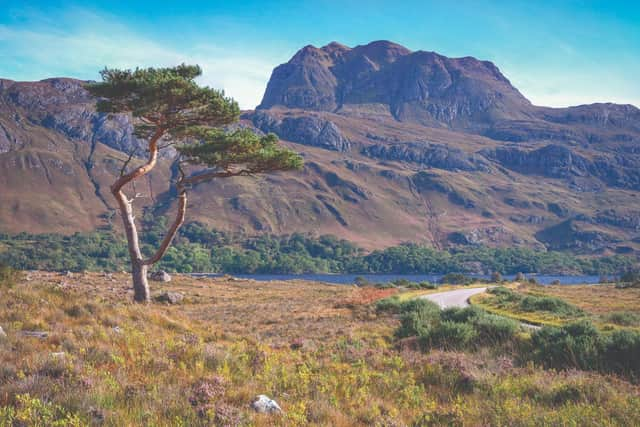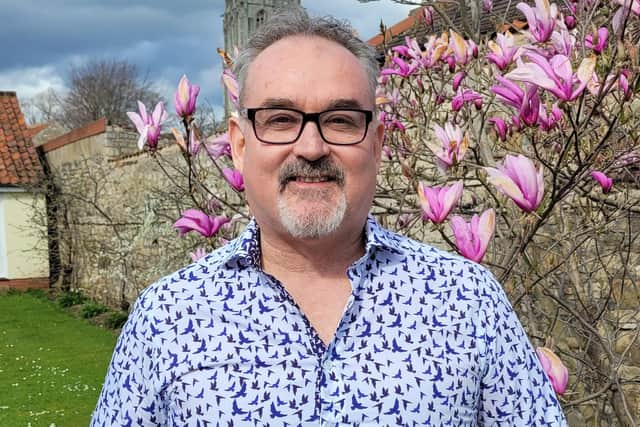Sustainable Scotland: Why the Highlands and Islands of Scotland present a world-class opportunity for habitat rewilding to tackle the climate emergency
The UK is now one of the least forested countries in Europe, with a forest cover of just 12 per cent, compared to France at 37 per cent.
Deforestation has gradually taken place through the centuries. And in Scotland the Highland Clearances unfortunately accelerated the process of deforestation as land was converted to grazing.
Advertisement
Hide AdAdvertisement
Hide AdOne might assume that Scotland’s treeless mountains and glens are in their natural state. In fact, the natural landscape has been profoundly altered.
Today, only one per cent remains of the once vast Caledonian Forest that covered the Highlands.
The story is repeated for peatland habitats. Scotland was once home to 80 per cent of the world’s blanket bogs, but most have been drained off for grazing and are now deeply damaged sites that emit carbon dioxide as they biodegrade.
Scotland has a biodiversity intactness score of only 12 out of 240, whereas Finland scores 234, and the Highlands have been named as one of Europe’s eight Endangered Landscapes by the Cambridge Conservation Initiative.


The good news is that our generation has an opportunity to restore ecosystems as part of the green economy.
As a zoologist with global experience, I founded Highland Carbon to help restore Scotland’s wild landscapes. We believe the Highlands and Islands present a world-class opportunity for habitat rewilding to tackle the climate emergency. We're not alone – 76 per cent of Scots surveyed support rewilding initiatives which restore biodiversity.
We support landowners to undertake, position and sell carbon offsetting projects such as afforestation and peatland restoration initiatives. We connect these estates with companies which want to achieve carbon credentials for their customers, investors or business clients.
Companies are not only looking to achieve offsetting. Rather they aim to achieve a range of United Nations Sustainable Development Goals (SDGs), including the reduction of poverty through community economic development. We advise landowners on ways to achieve various SDGs through their projects.
Advertisement
Hide AdAdvertisement
Hide Ad

In the UK we have world-class frameworks for nature-based offsetting projects: the Woodland Carbon Code and the Peatland Code. These frameworks are voluntary, so companies that undertake such offsetting are not mandated to do so. In the case of our company clients, they are offsetting, having undertaken major reductions in their carbon footprints.
The Highlands cover about half of Scotland and yet the population is just 235,000. There are relatively few opportunities for full-time employment. Carbon offsetting projects can bring enormous proceeds to communities.
Large government forestry and peatland restoration grants combine with offsetting revenue to fund spectacular nature projects. These funds flow through the supply chain, providing vital resources for community economic development for tree nurseries, deer fencing subcontractors, earth-movers, people working in ecological services.
There are only 100 months to go until 2030, a key year in the United Nations COP timeline for achieving net zero outputs. The carbon price has increased steadily at a linear rate over recent years. There has been no better time for landowners to undertake such projects.
We're keen to partner with landowners and to advise them on ways to optimise their income in terms of project scope, timings and project features.
The most remarkable element of the carbon marketplace is the head-spinning rate at which companies are decarbonising.
Simply by switching energy suppliers, some businesses are reducing their carbon footprints by as much as 90 per cent. Through various micro-generation energy schemes and efficiencies, they are reducing much of the remainder. Therefore, these companies only need to offset a vestigial balance.
With technological advancements, businesses may reach net zero without requiring offsetting at all. At that time, any remaining landowners will have missed the opportunity to improve their estates, generate revenue and benefit their communities.
Advertisement
Hide AdAdvertisement
Hide AdThe biggest risk to landowners is to wait too long to act. The carbon offsetting market will not remain indefinitely.
Richard Clarke is managing director of Highland Carbon, a firm specialising in provision of carbon offsetting units
A message from the Editor:
Thank you for reading this article. We’re more reliant on your support than ever as the shift in consumer habits brought about by coronavirus impacts our advertisers.
If you haven’t already, please consider supporting our trusted, fact-checked journalism by taking out a digital subscription.
Comments
Want to join the conversation? Please or to comment on this article.
